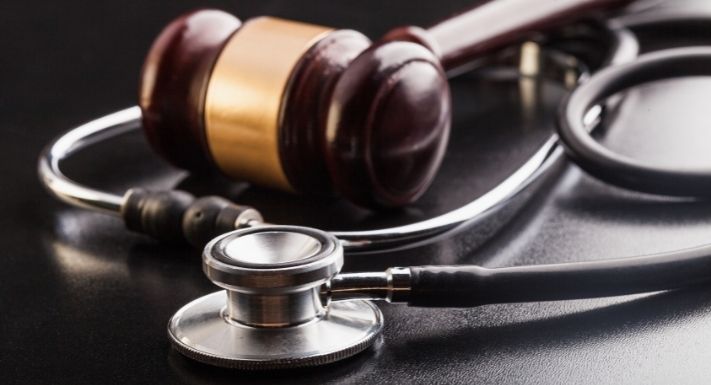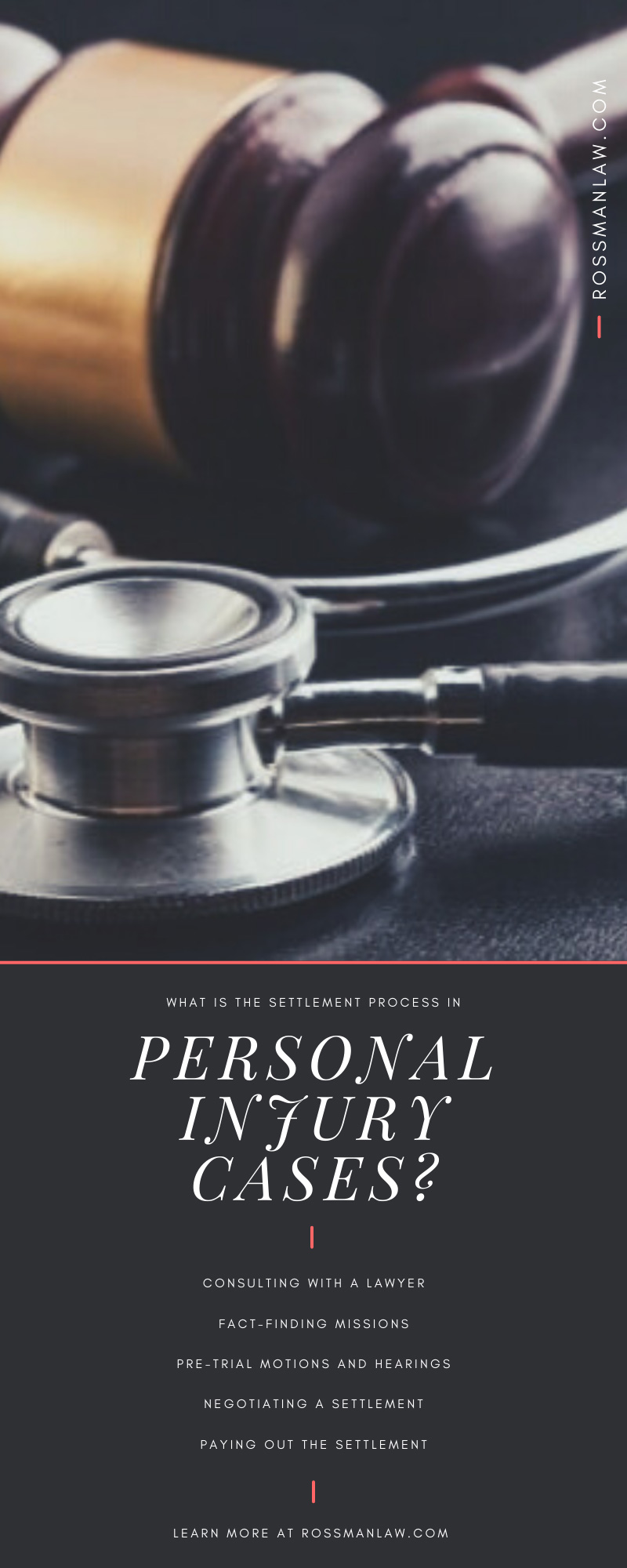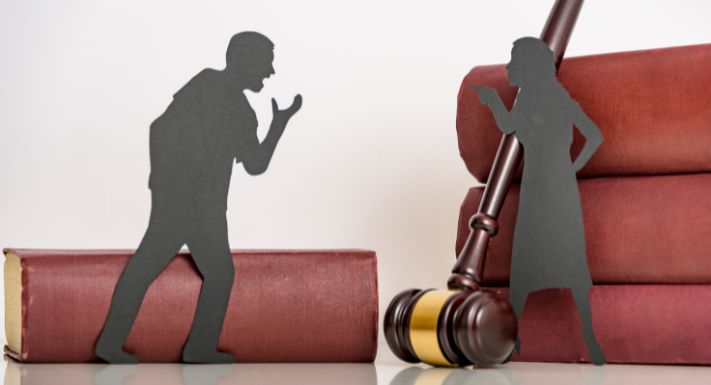
When Should You File an Insurance Claim After an Injury?
December 27, 2021
What Are the Statutes of Limitations for Medical Malpractice?
January 24, 2022The main goals of a personal injury lawsuit are to hold the liable party or parties responsible and to receive adequate compensation for your ordeal. If you’ve suffered an injury due to circumstances beyond your control, you shouldn’t be stuck with those medical bills on your own.
Rossman Law Group fights for fairness and justice; we’ll help you hold the liable party responsible and receive restitution. Once we’ve assisted you in winning your case, you’ll have a settlement to pay for your medical bills and compensate you for your emotional distress.
How does that settlement get to you, though? How long will it take? And what is the settlement process in personal injury cases? Unfortunately, it can differ depending on the circumstances of your unfortunate ordeal. Let’s look at how it works.
Consulting With a Lawyer
This step should be at the top of your list. Once you have suffered from an injury and believe you have a personal injury case, talk to an experienced attorney. A personal injury lawyer in Boise can determine if your case will hold up in court. Most personal injury attorneys, including the talented and passionate team at Rossman Law Group, provide consultations free of charge.
An attorney will also know which paperwork to fill out and to whom you should file that complaint. If they ascertain that you have a valid personal injury case, they’ll start working on those court documents. They can also explain your options for how you’ll receive the settlement.
Fact-Finding Missions
Once you’ve hired an attorney and gotten the initial paperwork filed, your attorney will enter the discovery phase. They’ll ask the defendant a series of questions about the accident, and the defendant will have a chance to ask you and your attorney some questions, too. Both sides need to gather adequate information before stepping foot into the courtroom.
If you were in an auto accident or suffered medical complications, your attorney may also consult with accident reconstruction experts and medical professionals. They’ll want their evidence to have credence and professional backup in court.
Pre-Trial Motions and Hearings
The defendant in your case may challenge the evidence your attorney has found. They may even want to throw out the case based on insufficient evidence.
Many times, defendants move to dismiss the case before completing the fact-finding and discovery stage. This motion can be for any number of reasons, including lack of personal jurisdiction. Were you involved in a car crash in Boise, but the driver who hit you is from Chicago? They may feel that a trial in Idaho isn’t fair to them.
When you and your attorney serve the defendant with your lawsuit, make sure you go by the book. Any improper service process, like if you didn’t deliver the summons on time, can lead to you losing your case.
These possibilities may seem worrying, but there is good news: most of the time, this is the point in the process where the defendant agrees to settle.
Trials are expensive and exhausting. If the defendant is a large company, they’ll likely want to keep their name out of the papers to preserve their reputation. The defendant’s attorney will reach out to your attorney with the possibility of a settlement. Most people and companies would rather pay out a settlement than go to court.
Negotiating a Settlement
How much should the defendant compensate you for your ordeal? How do you and the other parties involved agree on a dollar amount? That settlement contains many categories—and not all of it will be yours right away. Many personal injury lawyers work on contingency, which means the client does not pay them until they receive that settlement. Some of the money will go toward paying your attorney for their hard work.
Some factors that impact the ultimate dollar amount of your settlement include:
- How much your attorney thinks you could’ve won in damages if your case went to trial
- Any medical expenses you accrued in treating your injury
- The defendant’s financial resources
- The overall strength of your case
As the injured party, you also have a right to declare a minimum amount you’ll accept. Don’t let the defendant get away with paying you less than you deserve! Be an active part of the negotiation process.
Paying Out the Settlement
There are two main ways that you can receive personal injury settlements. You can either receive a lump sum all at once or organize a structured settlement that goes into a trust and pays out at regular intervals.
Lump sums are great if you have a lot of bills to pay in a short amount of time. If your debt is racking up from hospital bills and legal fees, having all that money at once can give you greater control over your finances. You can pay your bills as soon as possible.
Structured settlements are popular with those who anticipate high costs associated with their injury in the future. If you have sustained an injury that resulted in hearing loss, you’ll need to replace those hearing aids every few years. If you use a wheelchair now, you’ve taken on an expensive mobility aid that will require regular maintenance and occasional replacement. A structured settlement can help you pay those costs from a designated trust. Save for your future!
If the injured party is a minor (under the age of 18), the settlement is almost always in a trust. The minor will not have access to the trust until they turn 18; before that, it’s in the hands of their parent or legal guardian. Structured settlements help prevent reckless shopping sprees when the kid comes of age! The money will always be there for them, but they can’t access it all at once.
Your personal injury case can be a complicated process, but there is a shining light at the end of it all: a fair settlement for your unfortunate ordeal. To get to that settlement as soon as possible, hire a personal injury lawyer and have them walk you through the preliminary steps. The settlement process in personal injury cases often doesn’t go to trial, so make sure you have sufficient evidence to keep it out of the courtroom. Be an active part of the settlement negotiation process as you put your case in the experienced, capable hands of Rossman Law Group.






